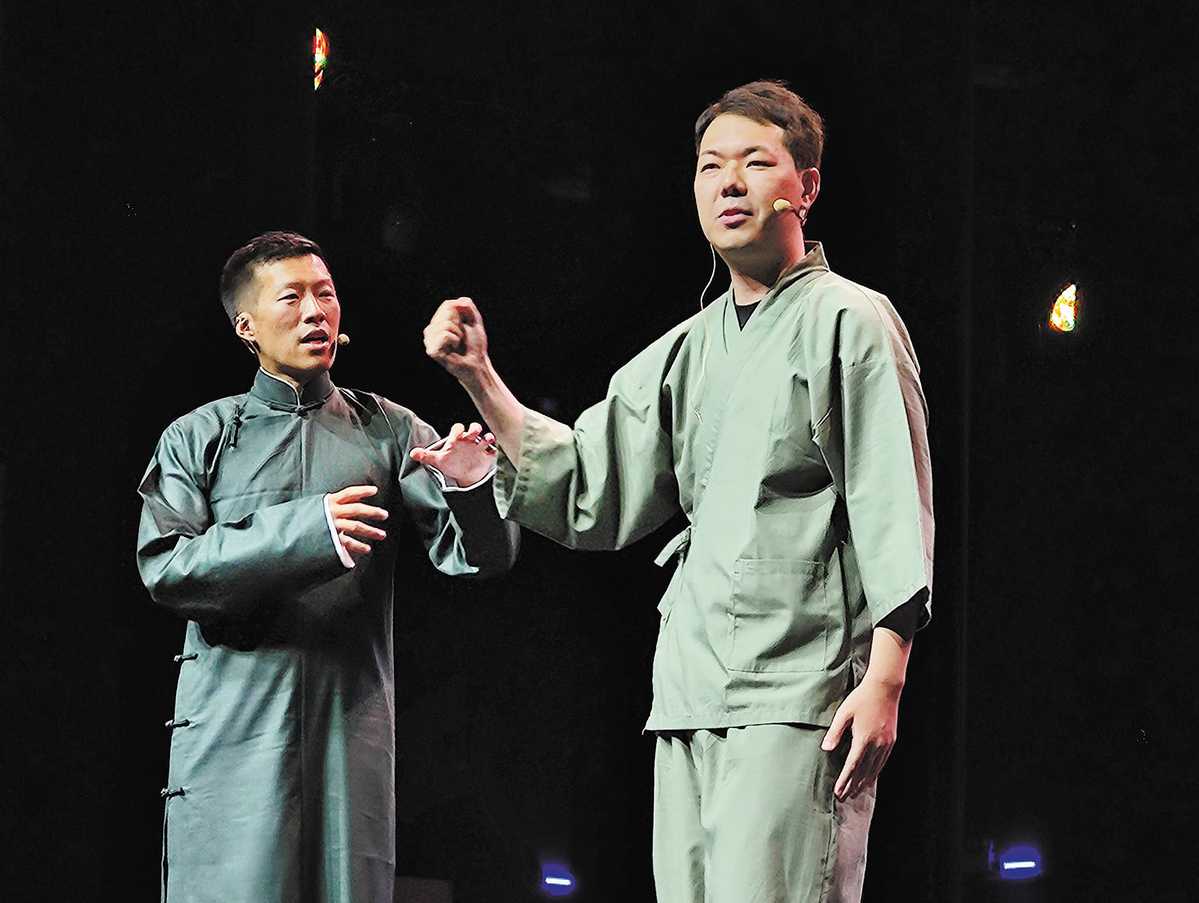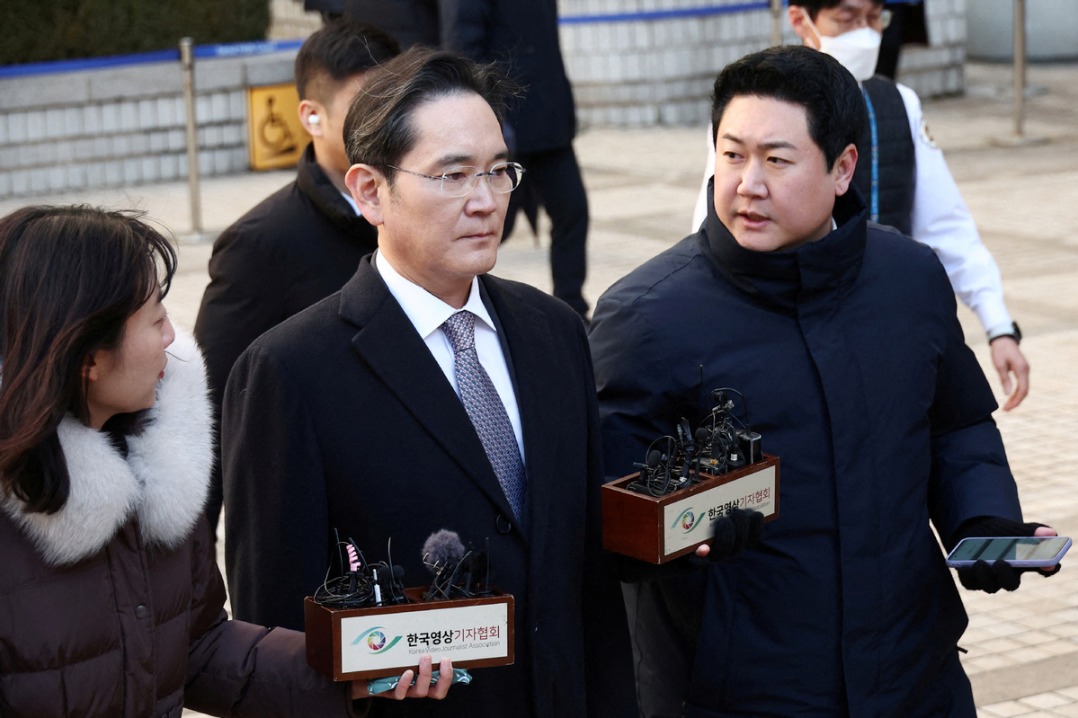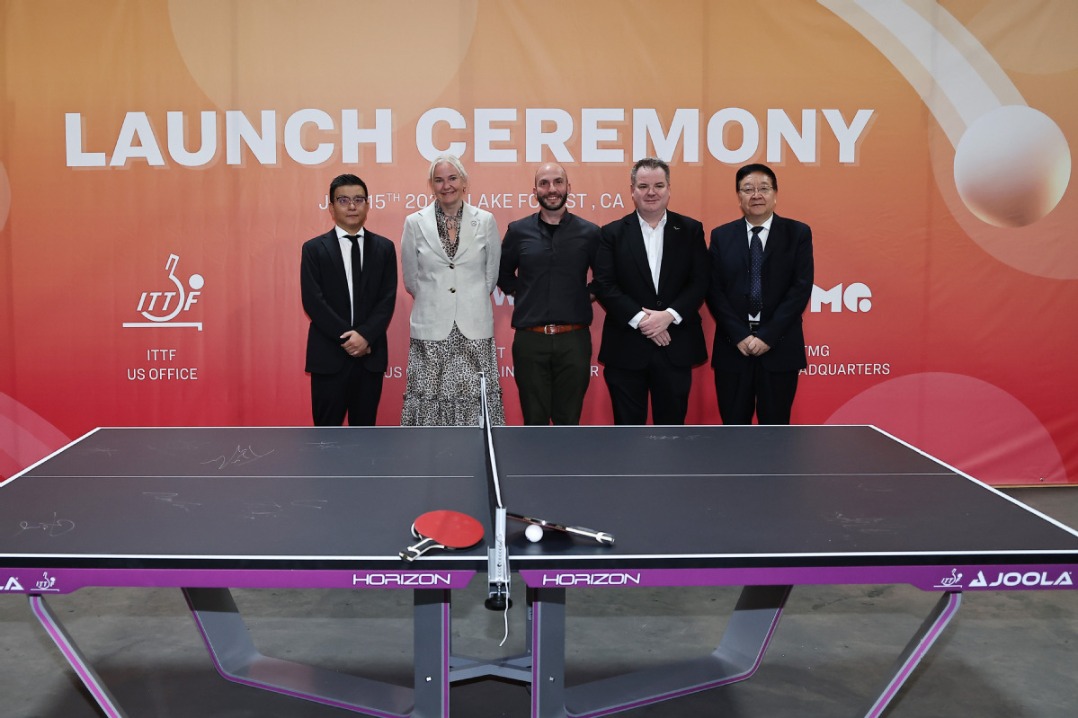Comedy to the power of two equals understanding

Editor's note: China Daily presents the series Friends Afar to tell the stories of people-to-people exchanges between China and other countries. Through the vivid narration of the people in the stories, readers can get a better understanding of a country that is boosting openness.

Two comedians are on stage, one dressed in traditional Japanese clothes and the other in a traditional Chinese robe, their repartee captivating the raucous audience.
This performance of the Chinese comedic form xiangsheng, or crosstalk, featuring a Japanese performer and a Chinese performer, took place during the International Humor Art Festival in Zhangjiagang, Jiangsu province, about 10 months ago.
Unlike the Japanese comedians invited by the China Quyi Artists Association to perform manzai, a traditional Japanese double-act comedy, Satoshi Nishida performed an original xiangsheng piece with his Chinese partner.
"This is how I break down cultural barriers between China and Japan," Nishida says.
His efforts to do that began in 2002 when he was just 9 years old. Having no concept of the distinctions between China and Japan, he traveled to Dalian, Liaoning province, a friendship city with his hometown of Maizuru, Kyoto. He was part of a local brass band to participate in an activity commemorating the 30th anniversary of the normalization of diplomatic relations between the two countries.
One person Nishida encountered on that trip was an elderly woman who spoke no Japanese, and someone suggested that the best way for him to shatter this wall of mutual incomprehension was to learn the Chinese language.
Encouraged by his mother, he did exactly that after returning to Japan. A fan of movie star Jackie Chan, his mother had once considered learning Chinese.
To learn Chinese, he engaged a teacher from Dalian, and he learned through daily conversations with the teacher as they wandered around Kyoto.
"I wasn't aiming to gain a qualification or pass any exam," Nishida said. His sole motive was to connect with Chinese people.
In high school, he won a scholarship to study in China, which he took up in 2012 at Beijing Language and Culture University.
In Beijing, it dawned on him that, by learning Chinese from someone in Dalian, he had been left with a thick accent and his speech heavily larded with dialect common to that city.
"In Dalian, they call a cabbage gadabai, whereas in Mandarin it's called baicai, so I couldn't make myself understood at the vegetable market."
Artistic aspiration
To improve his Mandarin, a teacher suggested Nishida attend weekly classes at the university given by Ding Guangquan, an exponent of xiangsheng. Ding performed xiangsheng with his apprentice, much to the delight of classroom audiences.
Nishida's linguistic ambitions eventually transformed into artistic aspirations, and Ding encouraged him to memorize the piece Writing Red Couplets by the xiangsheng master Hou Baolin.
Nishida spent six months committing the piece to memory, but as efficient as that rote learning turned out to be, it had one serious deficiency: he had next to no idea of what the script meant.
So he dug deeper into the cultural context of xiangsheng, such as studying the couplets for Writing Red Couplets and their meanings, and attended Lantern Festival activities for Guessing Lantern Riddles, the second piece he has learned.
His passion for Chinese culture eventually earned him Ding's approval, and he became an apprentice in 2014. While continuing his academic pursuits, Nishida gained experience as a xiangsheng performer by learning from the maestro and taking part in charity performances.
After gaining a master's degree in 2019, Nishida decided to work as a Japanese-language teacher at Beijing Language and Culture University. He became a core member of Cross-Cultural Crosstalk, a project led by the Chinese xiangsheng performer Yan Jiabao that brings together comedians from various countries to perform xiangsheng in Beijing. On stage, xiangsheng thus serves as a bridge between diverse cultures.
Bridging cultures
"We draw inspiration from cultural differences to modify traditional pieces or create original ones," Nishida says.
In March, three members of the group performed an adaptation of the traditional xiangsheng piece Drinking Game, exploring traditional festivals throughout the year. Nishida, with a Canadian performer, listed the holidays of their respective countries, and a Chinese performer reacted with curiosity and amusement, questioning why certain days deserved celebration.
Hearing about some very quaint cultural differences gave audiences not only plenty to laugh about but also provided them with some insight into how other people think and see the world.
"Expressing cultural differences between countries through comedy shines a light on the world we all live in, and in a way, I think how we did it was something only our team could have achieved," Nishida says.
Nishida says his exploration of Chinese culture through xiangsheng has also influenced the way he teaches Japanese.
In teaching a text about the conflict between Japanese dietary culture and table manners, he draws on videos of rakugo, a traditional Japanese storytelling form. In the rakugo piece Toki Soba, a character audibly slurps noodles, an act regarded as appreciative in Japan but seen as rude in many other cultures.
"This way I am keen for my students to understand the text at the level of words but also to grasp the nuance of culture with their senses, just as my master taught me," Nishida says.
Last month, he was awarded honorary membership by the China Quyi Artists Association.
He plans to remain in China, deepen his connections with Chinese people and inspire others to appreciate Chinese culture by pursuing their own passions, he said.
"Unless you overcome the barriers of culture, there is no way to truly understand the thoughts of the people in that country. I think I have demonstrated the importance of integrating into another culture. I hope more people will follow that example."
Contact the writers at tianxiaoran@chinadaily.com.cn

































